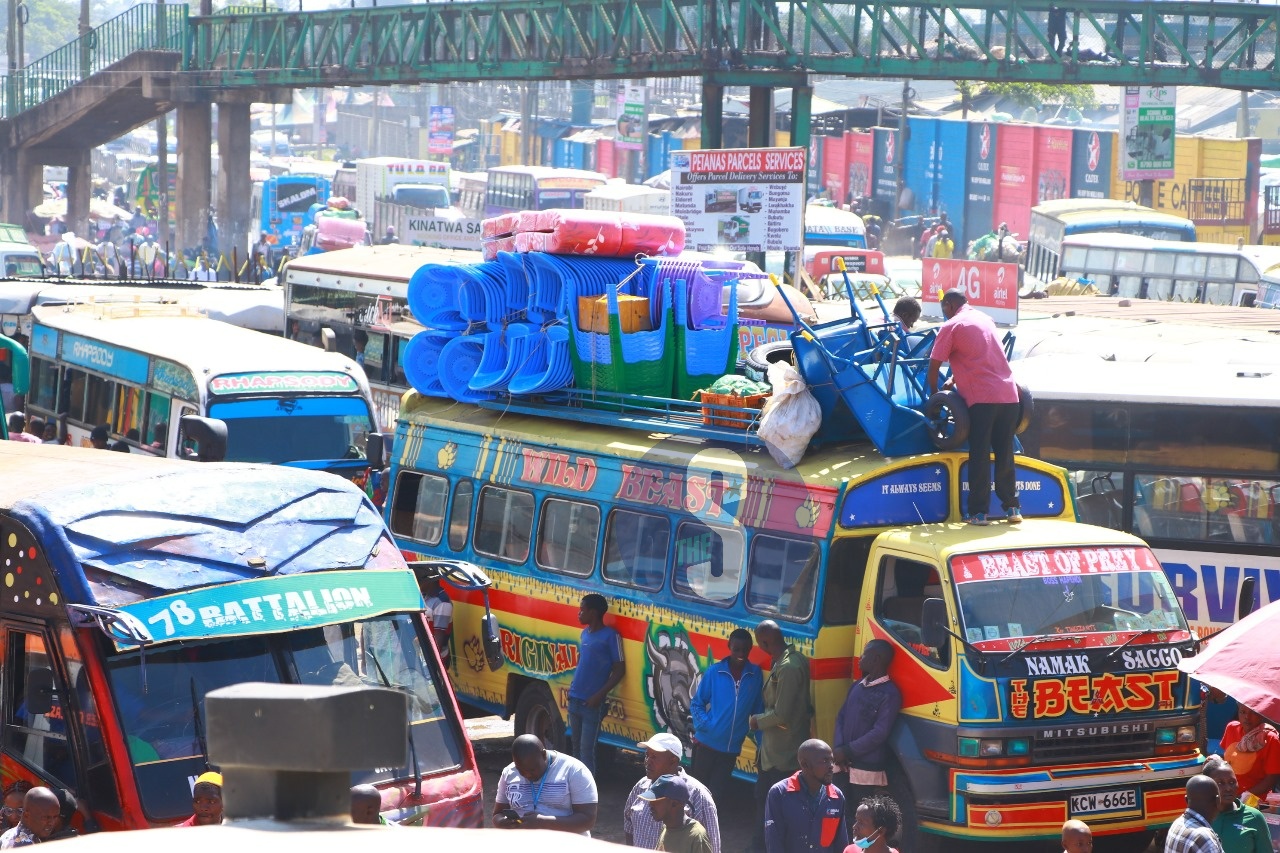

Caught between a long school holiday and costly Christmas festivities
amid a tough economy, households
especially in urban areas have lined
up several coping mechanisms,
with the majority sending children
upcountry.
A spot check by the Star in various regions in Nairobi shows that trimming daily meals to atleast two is also popular as the biting cost of living; joblessness and shrinking wages on high taxation push families to the corner.
“I have already sent my three children upcountry. I have a lactating cow, a fairly good kitchen garden and a few bags of maize from the previous harvest. I’ll be joining them as soon as I secure my annual job leave,’’ Juliet Kasandi who sells vegetables in Kangemi Market, Nairobi said.
She told this writer that life has become extremely unbearable in the city. “My family now requires a minimum of Sh800 to afford two meals.
Having three meals is a luxury.” Kasandi adds that there is nothing to celebrate even as Christmas festivities draw nearer.
“I’ll try my best to buy my children some clothes and make chapatis to mark the huge day. As a Christian, I can only hope Jesus’s birthday will have some good tidings on Kenya’s economy,’’ she said.
A few kilometers from her makeshift selling point along the busy Waiyaki Way is Joel Wakoli, a carpenter in Zambezi. Unlike Kasandi, Joel will spend the holiday in the city due to high transport costs.
“I would love to spend the holiday upcountry with my family but can’t manage at least Sh3,000 needed per head for transport. I have five children and a wife. That is a cool Sh21,000 before adding food and miscellaneous,’’ he said.
He recalls with nostalgia how he used to book Easy Coach in advance and travel home for Christmas by December 18.
‘’Things have changed for worst in the past decade. The overall cost of living keeps on rising,’’ Wakoli who hails from Bungoma County told the Star.
Various business operators in Nairobi Central Business (CBD) don’t anticipate many customers this Christmas holiday.
“I understand parents who are prioritising basic need this Christmas. The high tax regime has slashed salaries and poor government policies have seen various businesses close. It is getting tougher,’’ Caroline Mwaura who sells perfumes at Imenti Business Centre in Nairobi CBD said.
Her neighbour who sells men’s shoes agrees.
According to her, this economy requires urgent surgery to save the majority who are slowly sinking to unimaginable levels.
President William Ruto’s government is, however, painting a rosy picture of the country’s economy’s economy, with the latest monthly rental.
The government’s data shows that there was a drop in prices of some food commodities and power in September, pushing down the level of inflation to 3.6 per cent from 4.36 in the previous month, the lowest in the past decade, the figures seem not to match reality.
According to the Kenya National Bureau of Statistics (KNBS), prices of sugar, wheat flour-white and fresh packeted cow milk decreased by 2.8, 2.1 and 0.6 per cent respectively between August 2024 and September 2024.
Conversely, prices of oranges, potatoes (Irish), fresh fish and beef with bones rose by 5.2, 2.3, 2.1 and 0.9 per cent, respectively, in the period under review.
“Generally, the Food and Non-Alcoholic Beverages Index increased by 0.4 per cent between August 2024 and September 2024,” KNBS notes in a statement.
On the other hand, the housing, water, electricity, gas and other fuels’ Index decreased by 0.1 per cent in the period under review, attributable to a decrease in prices of kerosene, 50 kWh of electricity and 200 kWh of electricity by 2.1, 0.8 and 0.7 per cent respectively.
Japheth Aswani, a Boda boda operator along Karuna Close in Westland dismisses the government’s inflation figures as ‘cooked’, inviting researchers to his house for a proper analysis.
“I used to live comfortably with a daily wage of Sh1,200 six years ago. I could spend Sh200 on food, save Sh500 for rent and Sh500 for my family back in Luanda. Today, I can’t do much with Sh2,000 per day,’’ Aswani said blaming the deteriorating quality of life on the vicious government.
“It is a pity that I won’t be traveling upcountry for Christmas festivities, a tradition I have held for the past three decades I’ve spent in this city.”
Philip Kioko, a driver with an international real estate agency in Westlands says he will be retiring with his family to Makueni this holiday.
“My Sh70,000 salary is no longer sustaining. I have a fairly nice house and two acres paces of land. Taxes and school fees for my three children now in universities gobble everything. Borrowing for survival has eroded my overall well-being,’’ he said.
He adds that he will cut on food this holiday to survive as he waits to permanently relocate to Wote later in the year.
Other family heads that talked
to the Star said they would forego
holiday trips, cut on gifts and take
short loans to survive in the depressed economy.













